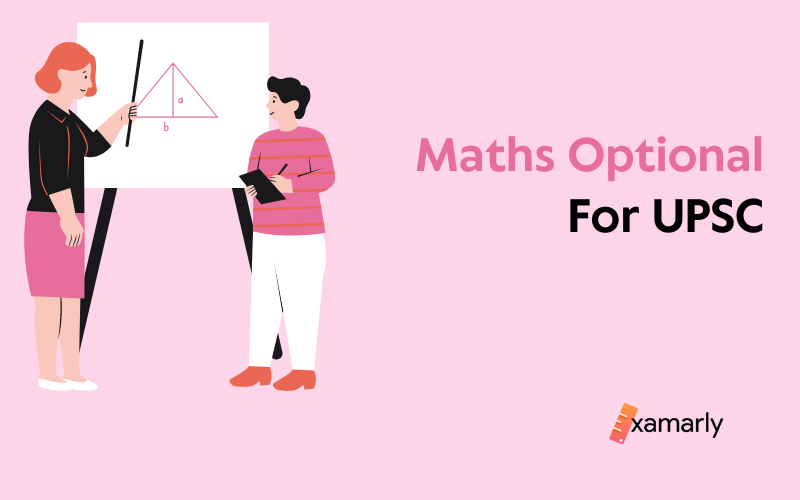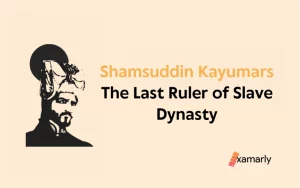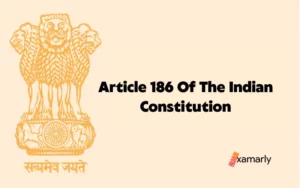Every UPSC candidate must decide to select the appropriate optional subject for the UPSC CSE Mains. As a general guideline, you should choose a subject with prior academic experience and a sincere passion. Selecting an optional subject will depend on the individual profiles, their appetite for practice, the subject’s past performance in UPSC exams, the amount of time needed to prepare, how much the subject contributes to the general studies syllabus, and if any coaching is required for the subject.
Choosing mathematics as an optional subject requires careful consideration, as it can make or break your final score. Since maths is an exact science, the answers can either be right or wrong; this allows you a precise idea of your score and is a great way to boost rank in maths optional for UPSC. At the same time, the margin of error can be fragile for simple mistakes like incorrect signs and missed steps.
If the best approach to studying for the maths UPSC optional has bothered you, you have come to the right place. This article will discuss the subject, what it entails, how many people take it for the UPSC Mains exam, what is the maths optional UPSC highest marks, and who has achieved it. Besides this, you will also learn how to prepare for the optional Maths paper for the UPSC CSE Mains exam.
Read it further to decode the tips to score high marks in mathematics optional for UPSC.
Maths Optional For UPSC
For the UPSC Mains exams, students can opt for Mathematics as an Optional subject. It contains two papers, Paper I & Paper II. Both papers carry 250 marks each for a total of 500 marks. Mathematics is regarded widely as a scoring subject, but as with any subject, it brings several perks and flaws. While taking this subject will not guarantee a high score, it will help students develop their analytical and problem-solving skills.
It is essential for students to be well-versed with the syllabus of UPSC maths optional exams and to study past years’ papers. Moreover, students must practice the concepts that they have learned in class. They should also practice solving mock tests and taking notes on the concepts. After completing the syllabus, they can apply what they have learned during practice in a real UPSC maths optional exam.
Students can prepare for these papers by enrolling in coaching centers or studying at home. Choosing Mathematics has a bonus for UPSC examinations as it helps develop analytical and problem-solving skills. A high score in this subject is an excellent way to boost your rank.
How Many Take Maths Optional?
UPSC Maths optional papers are widely contested among aspirants because of the split opinion about maths being a good pick for optional. Maths could be considered a rather challenging subject compared to others, but at the same time, it is also highly regarded as the easiest subject to score in. If we look at the past data alone, the number of students who pick maths as an option is considerably low, with an even lower success rate. Hence, it is essential to consider all the critical factors before making this choice. With the proper practice, it can be a reading subject.
UPSC Toppers With Maths Optional
Looking at some of the toppers who had opted for maths as an optional in recent years and cleared UPSC. Though uncommon, it is still hailed as a subject to score definitive marks since mathematics is an exact science.
Some recent maths optional UPSC toppers are listed below.
| Utsav Kaushal | AIR 14, CSE’16 |
| Shishir Gupta | AIR 50, CSE’16 |
| Arpit Gupta | AIR 54, CSE’21 |
| Surbhi Singla | AIR 75, CSE’21 |
| Preetam Kumar | AIR 09, CSE’21 |
They all have unique preparation strategies tailored to their strengths and background in mathematics. Still, most points can be boiled down to Diligent practice, consistent preparation, and note-taking for efficient revision.
Success Rate
According to the most recent civil services examination data, the success rate of mathematics as an optional subject is as follows.
| Year | No. of Candidates Appeared | No. of Candidates Recommended | Success Rate Percentage |
| 2016 CSE | 277 | 8 | 2.9 |
| 2017 CSE | 441 | 26 | 5.9 |
The success rate of any optional subject gives you a comprehensive idea of how many aspirants are opting for that subject and how many of those aspirants succeed with it. This should be a valuable frame of reference for fresh aspirants to make an informed decision.
UPSC Maths Optional Topic Wise Weightage
For the last six years, the conducting body has given Ordinary Differential Equations and Calculus the most importance as they have an average weightage of 80.6 marks and 78.4 marks. Every year the marks allotted to each topic can be pretty different, so it is advised to have consistent and detailed practice on all concepts.
A general idea regarding the exact marks weightage can be drawn with the previous maths papers, as shown in the table below.
UPSC-CSE Mathematics Optional Topic wise Weightage- 2019
| Topic Name | Marks |
|---|---|
| Linear Algebra | 70 |
| Analytic Geometry | 60 |
| Vector Analysis | 60 |
| Calculus | 70 |
| Ordinary Differential Equations | 70 |
| Statics & Dynamics | 70 |
| Modern Algebra | 40 |
| Real Analysis | 65 |
| Partial Differential Equations | 45 |
| Complex Analysis | 45 |
| Linear Programming | 35 |
| Numerical Analysis & Computer Programming | 90 |
| Mechanics & Fluid Dynamics | 80 |
UPSC-CSE Mathematics Optional Topic wise Weightage- 2018
| Topic Name | Marks |
|---|---|
| Linear Algebra | 45 |
| Analytic Geometry | 60 |
| Vector Analysis | 72 |
| Calculus | 95 |
| Ordinary Differential Equations | 106 |
| Statics & Dynamics | 22 |
| Modern Algebra | 35 |
| Real Analysis | 65 |
| Partial Differential Equations | 60 |
| Complex Analysis | 55 |
| Linear Programming | 60 |
| Numerical Analysis & Computer Programming | 75 |
| Mechanics & Fluid Dynamics | 50 |
Is Mathematics A Good Optional For UPSC
Maths Optional for UPSC is a good choice if the following points lie parallel to each other.
- You have studied maths in Graduation/postgraduation.
- If you have a keen interest in the subject.
- If you are good enough at applying the theorems or concepts and are well-versed in this subject. As an academic background will prove to be futile if you are unable to make a solid grip on the subject.
Look at some of the pros and cons of maths as an optional subject enumerated below.
Pros Of Math For Optional For UPSC
- Direct Questions: Questions are taken from textbooks with very few changes; these questions have a defined way to solve them with no ambiguity. Given enough practice, one can answer any question with ease.
- Limited Competition: Maths is a highly contested subject means very few aspirants opt for it as optional. This is also evident with past data, which means the potential to score high is very promising with minimal competition.
- Definite Scores: Math is an exact science with a correct or wrong answer. This helps gauge your score accurately compared to other optional subjects, which have a subjective component.
- The Static Syllabus: Current affairs do not play any role in mathematics. So having finished the syllabus, you have only to practice different question types and previous papers. Consistent practice will sharpen your awareness of mistakes and reduce time.
- Easy To Score: Maths problems are not subjective and have a definite right or wrong answer. This makes it easier to rack up scores compared to other optional subjects with practice.
Cons Of Math For Optional For UPSC
Some of the cons of maths as an optional for UPSC are enlisted below.
- Long Preparation Time: Maths is one of the few subjects where cramming does not work; it needs to be practiced by work. This generally takes more time in the long run because of regular practice.
- Will Not Help With GS Paper: The maths syllabus does not overlap with any other subject and will not aid in General studies paper as with most other papers.
- No Marks For Attempt: Marks are awarded only for deliberate correct answers and not for wild shots.
Syllabus Of Maths UPSC Optional
Syllabus of mathematics for UPSC optional consists of two papers with 250 marks each. Thus the mathematics paper holds 500 marks in the ardent exam of UPSC.
The UPSC maths optional syllabus covers ordinary differential equations and fundamental analysis, linear algebra, Cauchy-Riemann equations, and application to geometry, calculus, and other fundamental concepts. The syllabus also covers physics-oriented concepts like mechanics and fluid dynamics. Moreover, it includes the basic concepts of pure and applied mathematics for a balanced syllabus.
To know the Maths Optional Syllabus For UPSC CSE in detail, check out the linked article.
How To Prepare For Maths Optional For UPSC
If you want to crack the UPSC mains exam with flying colors, adequate maths knowledge can be helpful.
The UPSC syllabus is an excellent guide for exam preparation. You should also solve previous years’ question papers to assess your knowledge. Mock tests are also a perfect way to test your knowledge.
Maths Optional Strategy For UPSC
To prepare mathematics with ease, follow the strategy given below.
- Planning: Give ample head start to maths preparation as the syllabus can be extended with each topic requiring a different time frame to complete, depending on the complexity and weightage. Math requires consistent practice over a long time to hone each concept, so planning accordingly will be very efficient.
- Cover the following topics and make a strong grip over them: Linear algebra, real analysis, complex analysis, calculus, ODE, PDE, and other topics that carry more weightage in an IAS Exam.
- Systematic approach: If you can answer questions step-by-step, you’ll have a much better chance of a good score. Regardless of the difficulty level, you’ll have to spend sufficient time making your answers sharp and clear.
- Understand the formulas: Understanding the subject’s formulas and theorems is vital. Also, solve the questions as much as possible to become more efficient in applying the concepts or the theorem to the questions effectively. This will help you to solve the questions effectively in the examination hall.
- Avoid simple errors: Avoid making silly mistakes and try to figure out the right solution for each problem. You’ll also want to practice answering maths questions as much as possible. There’s no substitute for practice. Keep re-reading the syllabus, and don’t hesitate to ask a mentor for help.
- Study material: It is essential to refer to and practice from a set of books recommended below.
In addition to studying the syllabus thoroughly, students should stay calm and relaxed when they study. The more relaxed a student is, the better they’ll perform on the exam. Reading the entire Maths Optional Syllabus is also essential, so you’ll know which topics to focus on. Knowing how marks are distributed in the syllabus will help you categorize the different topics properly.
To learn more about How To Prepare Mathematics Optional For UPSC, visit the linked article.
UPSC Maths Optional Study Material
The UPSC syllabus is designed to help you master the fundamentals of mathematics. Unlike optional subjects such as English, it does not require you to learn the entire syllabus from scratch or a single source. It is also possible to study the syllabus topic-wise. Hence it is advantageous to refer to different maths textbooks that have command over various topics for superior preparation. Some of the books on these topics are as follows.
- Linear Algebra: A.R.Vasista, Schaum Series
- Calculus and Real Analysis: S.C Malik and Savita Arora, Shanti Narayana
- Algebra: Joseph A. Gallian, Shramik Sen Upadhayay
- Ordinary Differential Equations: M.D. Raisinghania
- Complex Analysis: Schaum Series, J.N. Sharma, Ponnu Swami
- Mechanics and Fluid Dynamics: M.D. Raisinghania, R.K. Gupta, J.K. Goyal, and K.P. Gupta
- Numerical Analysis: Jain and Iyengar, K. Shankar Rao, S. S. Sastry
- Dynamics & Statics: M. Ray, A.R.Vasista
- Vector Analysis: A.R.Vasista, Schaum Series
- Linear Programming: Shanti Swarup, S D Sharma
- 3-D Geometry: P.N. Chatterjee
- Computer Programming: Raja Raman
For students with limited time and interest in mathematics, video lectures can be a great help. Videos help you comprehend basic concepts intuitively and prepare you for the exam. In addition to video lectures, you can also learn the fundamentals of the subject using a UPSC maths optional study material. These can also help students to prepare for UPSC with ease.
Tips For Scoring High In Maths Optional Papers
Practice as much as possible is paramount for having a great score in the Mathematics optional for UPSC Civil Services Exam. You should devote time each day to a study plan that includes revising and practicing the exam questions.
- Read the exam paper with the utmost care, and then solve it.
- Avoid casual and silly mistakes, like preventing yourself from copying wrong numbers, variables, or signs (say, “+”, or “-“). Thus copy the questions/equations very carefully. As a little mistake can cost you to lose marks significantly.
- Don’t skip any of the steps. Solve the questions step-by-step. This will not only fetch the marks but also help you to proceed forward with the correct solution, as the theorems or concepts will automatically strike your mind. However, a significant amount of practice is required for this.
- Be conscious of the space you are taking to answer each question, as you have limited space. Read the question carefully before you start and consider your approach, so you do not write the wrong approach and waste space.
Paper of maths optional for UPSC can be more challenging than the other optional subjects in the UPSC mains examination, but you can still get high marks if you know the right approach. A step-by-step process and presenting your solution in a logical flow will increase your chances of scoring high in this subject.
Conclusion
UPSC offers mathematics as one of the optional subjects for its UPSC Mains exam. Mathematics is widely regarded as a scoring subject, given your inclination or academic background with graduate-level mathematics. Since maths is a logical subject, there are either correct answers or wrong answers, hence can significantly improve the score. But at the same time, minor errors like signs and steps can cost marks.
Toppers always advise approaching maths with consistent practice, answering step by step, and understanding the syllabus.
FAQs
What Is The Level Of Maths Optional In UPSC?
The level of maths optional in UPSC is of graduation/postgraduation level. So, if you are well versed in it, then you will not find it difficult to cover the syllabus of maths optional for UPSC.
Is Calculator Allowed In UPSC Maths Optional Paper?
Yes, the calculator is allowed providing that it is a simple scientific non-programmable calculator.
Is Mathematics An Excellent Option For UPSC?
No matter if it is for the UPSC examinations or another exam, math has always been a subject that scores well. You will undoubtedly receive excellent marks if your preparation was thorough and your responses were accurate.
Who Should Take Maths Optional?
For the UPSC Main Examination, math is one of the most popular optional subjects. The only candidates who ought to think about choosing it, though, are those who have studied this subject in their graduation/post-graduation.
Who Has Got The Highest Marks In Maths Optional UPSC?
Anubhav Singh received the highest marks in Maths Optional in UPSC in 2017. On a scale of 500, he received a 375.






